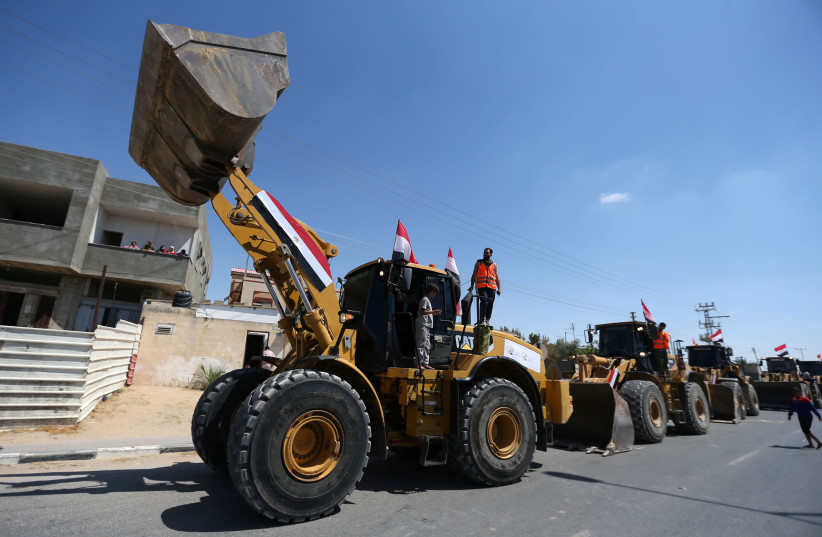The Biden administration is set to deny $130 million of military aid to Egypt over what it says are human rights concerns. That is what US State Department officials said on Friday in describing the punishment of a key ally.
It was not entirely unexpected. In September, Secretary of State Antony Blinken said that the aid would be withheld if Egypt did not address specific human rights-related conditions Washington has set out, which activists say included the release of certain individuals deemed to be political prisoners.
An exception was granted under the Trump administration to free up foreign military financing for President Abdel Fattah al-Sisi’s government, worth $300 million, because it was in the interest of US national security.
The US has provided around $1.3 billion in foreign assistance to Egypt annually since the 2017 fiscal year, according to a congressional research report.
Sisi, who ousted the Muslim Brotherhood in 2013, has overseen a crackdown on dissent that has tightened in recent years. Rights groups say tens of thousands have been detained, including Brotherhood leaders and secular activists.

While rights groups called on the administration to block the entire $300m. of military aid to Sisi’s government, officials explained that for now they were settling on giving part of it.
“While the Secretary has not made the final decision, if there are not major developments over the next couple of days, the Secretary will re-program the $130m. to other national security priorities as he previewed in September,” a State Department official explained.
When reviewing this issue, there are a number of factors to keep in mind. First is the fact that Egypt does not have a perfect human rights record. No Arab country does, for that matter – but then again, none get annual military aid like Cairo, a result of the Camp David peace accord reached between Israel and Egypt in 1978.
“It sends the important message abroad that we will back up our commitment to human rights with action – and gone are the days where dictators receive blank checks from America,” explained US Sen. Chris Murphy, a Democrat and ally of President Joe Biden.
On the other hand, Egypt is an important player today in stabilizing the region, combating radical Islamic extremism and fighting proxies of Iran that seek to undermine moderate Sunni regimes – not only in Egypt but also in the Gulf, in places like Bahrain and the United Arab Emirates.
No better proof was needed of this than what happened in recent weeks when the Houthis fired a series of missiles and drones at the UAE, some of which were intercepted by Patriot missiles operated by US troops stationed nearby.
Egypt has been combating radical Islamists in recent years in the Sinai Peninsula, including terror cells from ISIS. Sisi’s regime has been threatened by radicals from the Muslim Brotherhood while the country has faced dire economic challenges, made more acute during the last two years of the coronavirus pandemic.
For Israel, relations with Egypt are of paramount importance. Cairo plays a key role in keeping the calm in Gaza, and the peace with Israel enables the IDF to focus on other threats – particularly those in the North – instead of having to also build up capabilities and forces along the southern border.
We believe that human rights need to be respected and that Egypt needs to do a better job when it comes to judicial processes and in considering the detention of civil activists, bloggers and more. Not every prisoner can be written off as a national security threat.
Nevertheless, the Biden administration needs to be careful not to throw the baby out with the bathwater. The money that Egypt needs for its military is to help it continue to serve as a pillar of stability in a dynamic and volatile region.
This is a delicate balance that is not always easy to keep, but America would do well to remember that the Middle East is a region with a culture very different from that of the West.
Israel’s interests are not the only consideration here. There is a region that is under attack by Iran. Releasing money to the ayatollahs and holding back money from Sisi sends an interesting message.
